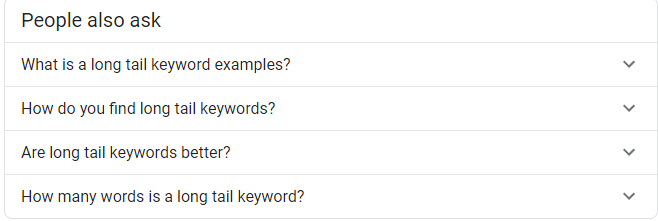Long-Tail Keywords Are A Must-Have for Content Marketing and SEO. But How Do You Find Them for Free?
This article contains the top 3 tips that I've learned on how to do amazing, effective long-tail keyword research without spending a dime.
1) Start with Google Ads Keyword Planning tool

You won't find many long-tail keywords in the Google Ads Keyword Planning Tool, but it is a robust search tool to generate keyword ideas. For each keyword and keyword idea, it will tell you the average monthly search volume, how high the competition is, and, in many cases, the cost-per-click for that keyword. All of this comes straight from Google and is completely free! This is a great place to start to make sure that each keyword you use in the next step is getting search volume and it might help you get additional ideas for things to search.
2) Perform a Google Search Using Each Term

When you perform a Google search, there's usually a box on the results box that says "People Also Ask." That's Google literally handing you long-tail keywords on a platter. These questions are perfect for inspiring blog posts or even just gaining insight into what the consumer has top-of-mind when they think of your keyword.
Note: This is actually most effective when you use Incognito Mode (or your browser's equivalent) to avoid being served personalized results.
3) Use a Free Tool to Find Real Long-Tail Keywords People Actually Use

There's a few great free resources out there that will serve you well in finding useful long-tail keywords.
- Answer the Public - This tool has seemingly infinite visually interesting depictions of long-tail keywords. However, it only allows a few searches per day.
- Neil Patel's Uber Suggest - This is an amazing tool if you want to get free insights into the exact search volume of each keyword. Although, it only gives you this info on the first several keyword results and it also has a daily limit (albeit much higher than Answer the Public's).
- Keywordtool.io - This search tool gives you the least information and keyword suggestions out of the three, but I've yet to hit a daily search limit when using it and it gets the job done.
Comments
Post a Comment